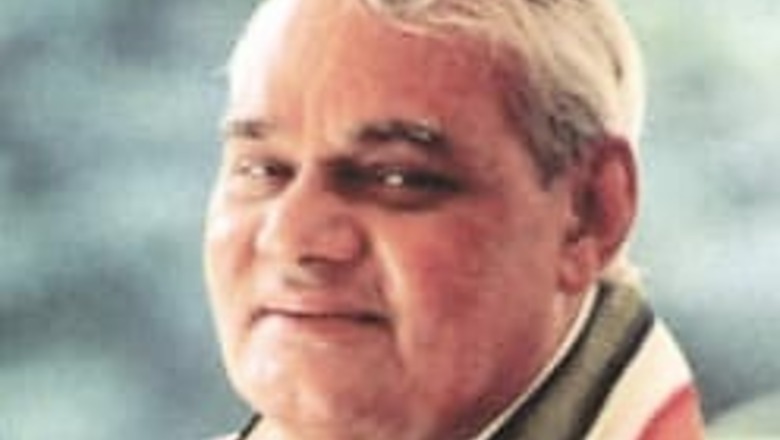
views
New Delhi: Former prime minister Atal Bihari Vajpayee on Tuesday attributed the failure of his Agra summit with President Pervez Musharraf to the Pakistan leader's stand that the bloodshed in Kashmir was the "people's battle for freedom".
Vajpayee, who rejected Musharraf's remarks in his book that both felt insulted in Agra, insisted that the then NDA government believed that there could be no normalcy in ties between India and Pakistan until there was an end to cross-border terrorism.
"I am still to see the book (In the Line of Fire), but his reported comments on the failure of our talks at Agra have surprised me. No one insulted the General and certainly no one insulted me," Vajpayee said in a statement.
Vajpayee recalled his bus journey to Lahore to meet the then Pakistan prime minister Nawaz Sharif, a trip he said was aimed at thrashing out terrorism and other issues in person.
"That trip was appreciated by all, but it yielded no results," he said as he recalled his government's invitation to Musharraf after the change in the Pakistani establishment.
"General Musharraf readily accepted our invitation and came to Delhi. But at Agra, during our talks, he took a stand that the violence that was taking place in Jammu and Kashmir could not be described as 'terrorism'. He continued to claim that the bloodshed in the state was nothing but the people's battle for freedom," Vajpayee said.
"It was this stand of General Musharraf that India just could not accept and this was responsible for the failure of the Agra summit," he added.
Vajpayee also cited his 2004 joint statement with Musharraf in which the General promised not to allow Pakistani territory to be used for terror activities against India.
"Pakistan came to our viewpoint when, in the joint statement of January 2004, it agreed that Pakistan government would not allow Pakistan or any land in its control to be used for purposes of terrorism," he said.
He maintained that the 2004 joint statement was a starting point for the composite dialogue between the two countries.
"If General Musharraf had been willing to accept our position in 2000, the Agra summit would have become successful, and the three subsequent years may have proved very valuable to take our initiative forward," Vajpayee said.




















Comments
0 comment